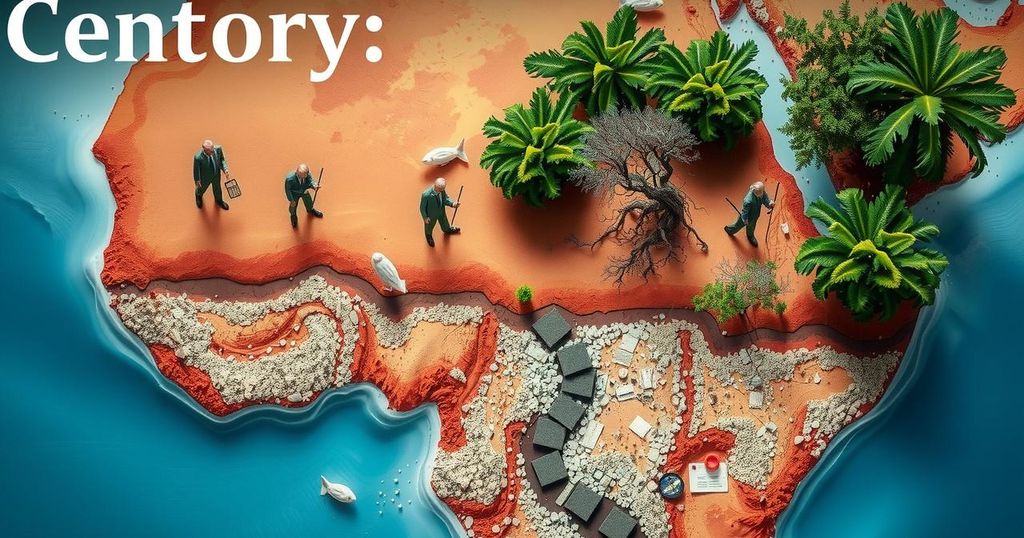Central Africa is facing severe crises due to climate shocks, humanitarian events, and political instability, according to UN officials. Over three million people have been displaced this year, worsening socio-economic challenges. The Congo Basin’s critical role in climate regulation is underfunded, highlighting the urgent need for international assistance. Upcoming elections and ongoing security threats must be addressed to achieve stability, with hopes set on cooperation and peace by 2025.
Central Africa confronts a multitude of crises characterized by severe security challenges, environmental calamities, and political instability. Abdou Abarry, the UN Special Representative for Central Africa, emphasized the imminent need for collective international support at a recent Security Council meeting. He revealed that over three million individuals were displaced due to climate-induced disasters within this year, exacerbating an already precarious socio-economic landscape across the region.
The Congo Basin forest, often referred to as the ‘second green lung’ of the planet due to its capacity to absorb substantial amounts of carbon dioxide, was lauded as vital for global climate stability during COP29. Yet, Abarry lamented that international commitments to climate financing remain woefully underwhelming, with less than 15 percent of promises being actualized. Furthermore, the humanitarian situation is dire, spurred by mass displacements and health threats, including the Mpox virus, namely in the Democratic Republic of Congo (DRC).
The UN representative highlighted the importance of monitoring upcoming electoral processes in several Central African countries, including Rwanda, Burundi, Cameroon, Gabon, and the Central African Republic (CAR). These countries have sought electoral assistance from the UN, signaling their reliance on multilateral support to ensure democratic processes.
Moreover, ongoing insurgencies, particularly in the Lake Chad Basin region, necessitate enhanced security measures. Abarry pointed to collaborative efforts needed to fortify the Multinational Joint Task Force, crucial for regional stability.
As the region gazes towards the future, Mr. Abarry articulated the necessity for increased international funding aimed at strengthening climate resilience, humanitarian aid efforts, and fostering peace. The UNOCA is poised to facilitate these initiatives, with a summit scheduled for February 2025 that will prioritize discussions on climate sustainability and humanitarian issues across Central Africa.
In closing, Mr. Abarry expressed optimism for a future defined by peace, justice, and prosperity, driven by a reinvigorated approach to multilateral cooperation aligned with UN principles and commitments.
The prolonged challenges faced by Central Africa stem from a combination of climate change impacts, ongoing humanitarian crises, and political instability. The region has been severely affected by extreme weather events, conflict, and disease outbreaks, leading to widespread displacement and deteriorating living conditions. As a significant area for global climate regulation, the Congo Basin is of particular importance, yet it remains underfunded and under-supported, hindering effective responses to these pressing issues. The international community’s failure to fulfill climate financing commitments exacerbates the crises, prompting calls for urgent action and collaboration. Additionally, upcoming elections in various Central African nations pose challenges and opportunities for democratic governance, while regional security efforts continue to combat insurgency threats.
In summary, Central Africa faces a confluence of crises driven by climate change, humanitarian emergencies, and political instability. The urgent demand for international support and the need for robust climate action have been emphasized by UN officials. As the region looks ahead, concerted efforts are essential to build resilience, ensure humanitarian assistance, and foster peace through enhanced cooperation and electoral integrity. Mr. Abarry’s hopeful vision for 2025 necessitates renewed commitment to multilateralism and collective action.
Original Source: news.un.org






